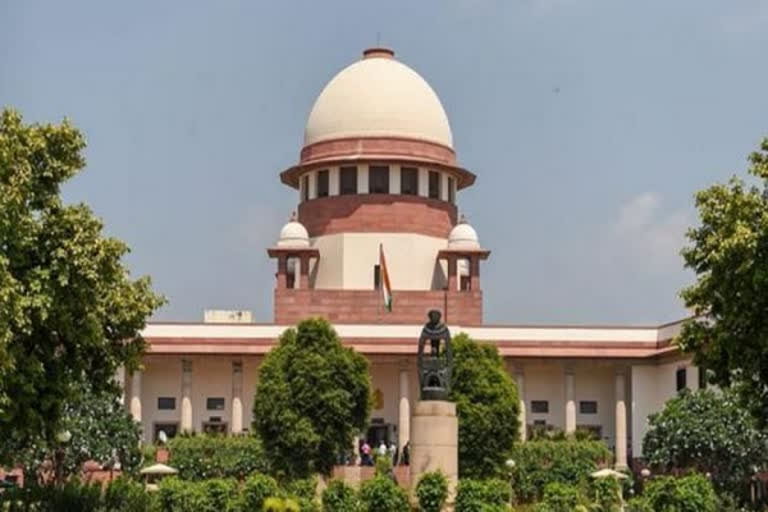New Delhi: The Supreme Court on Wednesday commenced hearing to examine whether 97th constitutional amendment denuded states of their exclusive power to enact laws to deal with management of cooperative societies, saying slightest in-road will render the power of States as non-exclusive.
The 97th constitutional amendment, which dealt with issues related to effective management of the co-operative societies in the country was passed by Parliament in December 2011 and had come into effect from February 15, 2012.
The change in the constitution has amended Article 19(1)(c) to give protection to the cooperatives and inserted Article 43 B and Part IX B, relating to them.
A bench of Justices R F Nariman, K M Joseph and B R Gavai is hearing appeals filed by Centre and other parties against the Gujarat High Court order of April 22, 2013 by which it had quashed certain provisions of the constitutional amendment.
Read: Supreme Court orders CBI to probe Rohtak Land Scam
During the hearing, the bench told Attorney General K K Venugopal that it wanted to examine if the amendment interfered with the exclusive power of the State under Article 246 (3) with regard to enacting law relating to cooperatives as it is the state subject.
Venugopal said the amendment was enacted to bring in uniformity in the management of cooperative societies and it does not take away the powers of the State to enact laws with regard to them.
The bench said if the Centre wanted to achieve uniformity then the only way available was to take the recourse under Article 252 of the Constitution which deals with power of Parliament to legislate for two or more States by consent.
You cannot short circuit this provision, the bench said, adding that in effect what the government has done is that the power of States to enact laws with respect to cooperative society is no longer exclusive.
It said, Slightest in-road will render the power of States as non-exclusive. Venugopal said that entry 44 of List I (union list) deals with multi-state cooperatives and there are several judgments dealing with the issue.
Justice Joseph told Venugopal that entry 44 of List I does not have the word cooperative societies' while entry 32 of List II (State list) has the word cooperative societies'.
Senior advocate Prakash Jani, appearing for a Gujarat based cooperative, said that he supports the stand taken by the Centre and the amendment was brought by exercising constituent power of parliament to bring in uniformity in laws relating to co-operative societies enacted by different States.
He said that Centre has from day one maintained that entry 32 of List II (State list) is not picked up and brought to List I (union list) as States still continue and are free to make any law with regard to the co-operative societies.
Advocate Masoom K Shah, appearing for one Rajendra K Shah said that the High Court has taken a correct view that certain provisions of the constitution amendment violated the basic structure of federalism as it was not ratified by the States as required under Article 368 of the Constitution.
The hearing remained inconclusive and would continue on Thursday. On April 22, 2013, the High Court, while striking down certain provisions of the 97th constitutional amendment, held that the Centre cannot enact laws or issue notification with regard to cooperative societies as it is a state subject.
Read: SC seeks status report on Information Commissioners
The High Court verdict came on a PIL challenging the legality of the 97th constitutional amendment on the ground that Centre had no legislative competence to enact law for cooperative societies which is exclusively a state subject under the scheme of the Constitution.
The High Court had held that certain provisions of the amendment pertaining to cooperative societies violated the basic structure of federalism.
The PIL petitioner have contended that as per the provisions of Article 368 of the Constitution, if Parliament intends to amend or delete any of the lists in the seventh schedule, such Amendment shall require to be ratified by the legislature of not less than one half of the states by resolution to the effect passed by those legislatures before the bill making provisions for such amendment is presented to the President for Assent.
PTI



